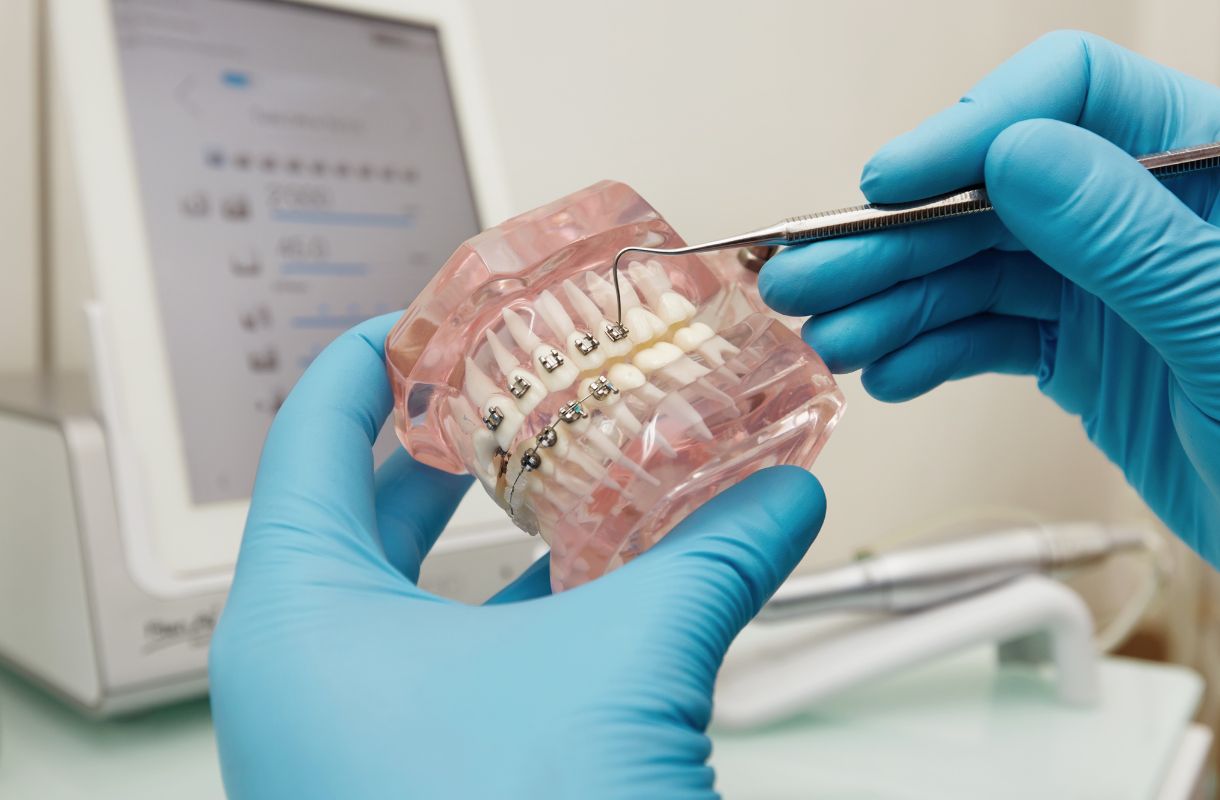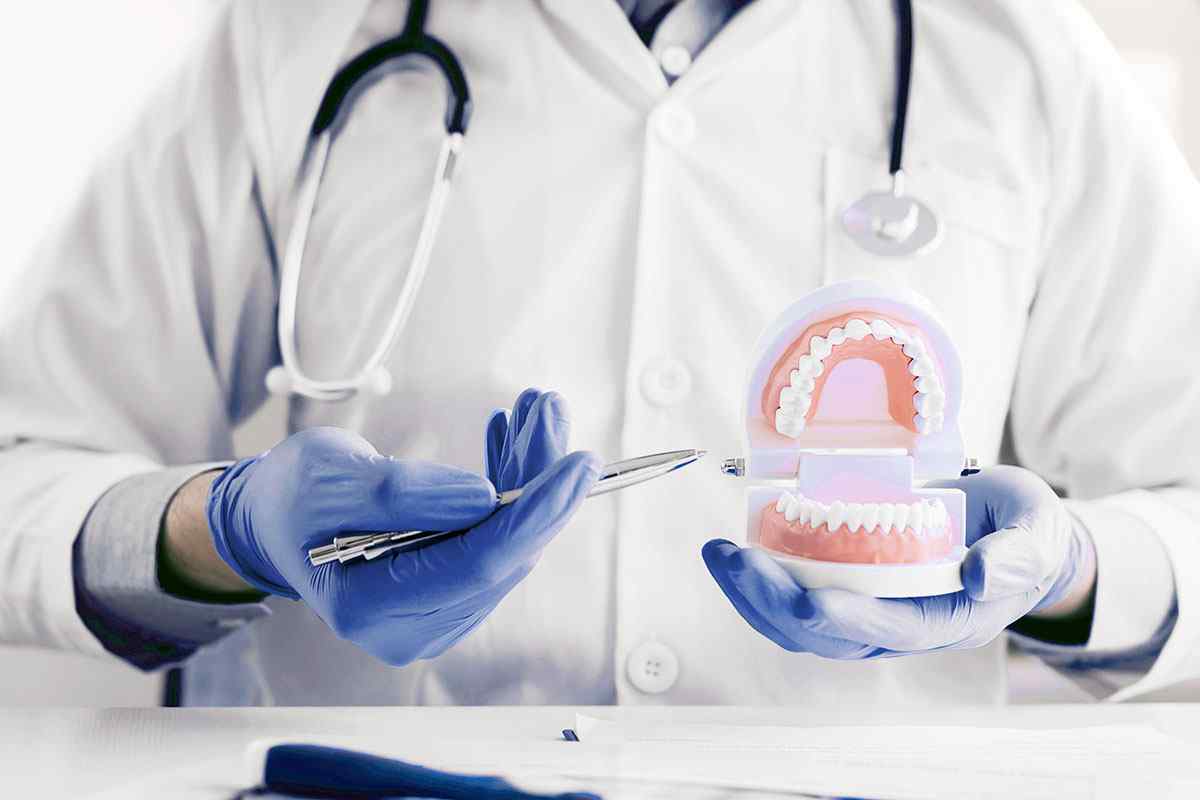What are
Dental Crowns?
A Dental crown is a custom-made cap that covers a damaged or weakened tooth, restoring its shape, size, strength, and appearance.
Crowns are an essential part of restorative dentistry, providing both functional and aesthetic benefits to patients with various dental issues.
They are prosthetic devices that encase the entire visible portion of a tooth above the gum line. They are designed to improve the appearance of a tooth, making your smile brighter and more uniform.
When Are Dental Crowns Needed?
There are several situations where a dentist might recommend a dental crown:
- To protect a weak tooth from breaking
- To restore a broken or severely worn down tooth
- To cover and support a tooth with a large filling
- To hold a dental bridge in place
- To cover misshapen or severely discolored teeth
- To cover a dental implant
- To make a cosmetic modification
Types of Dental Crowns
Dental crowns can be made from various materials, each with its own advantages and disadvantages:
1. Porcelain-Fused-to-Metal (PFM) Crowns
- Combine strength of metal with aesthetics of porcelain
- Good for both front and back teeth
- May show a dark line at the gum if gums recede
2. All-Ceramic or All-Porcelain Crowns
- Provide the best natural color match
- Suitable for people with metal allergies
- Ideal for front teeth
- Less durable than metal crowns
3. Metal Crowns
- Made of gold, palladium, nickel, or chromium
- Very durable and long-lasting
- Require less tooth structure removal
- Noticeable color, usually used for out-of-sight molars
4. Zirconia Crowns
- Combine strength of metal with aesthetics of porcelain
- Highly durable and resistant to chipping
- Require minimal removal of tooth structure
- Can be more expensive than other options
The Dental Crown Procedure
Getting a dental crown typically involves two dental visits:
First Visit:
1. Examination and preparation of the tooth: Your dentist will thoroughly examine the tooth and surrounding area. They may take X-rays to check the roots and surrounding bone.
The tooth is then prepared by removing decay, if present, and shaping it to accommodate the crown.
2. Taking impressions for the crown: Precise impressions of your teeth are taken using a dental putty or digital scanner.
These impressions ensure that your custom crown will fit perfectly and align correctly with your bite.
3. Placing a temporary crown: A temporary crown is placed to protect the prepared tooth while your permanent crown is being fabricated in a dental laboratory.
This temporary crown is usually made of acrylic and is cemented with temporary cement.
Second Visit:
- Removing the temporary crown: The temporary crown is carefully removed, and the tooth is cleaned of any residual cement.
- Checking and adjusting the permanent crown: Your dentist will check the fit, color, and shape of the new permanent crown. They may make minor adjustments to ensure proper fit and bite alignment.
- Cementing the new crown in place: Once you and your dentist are satisfied with the fit and appearance, the crown is permanently cemented onto your tooth.
Caring for Your Dental Crown
To ensure the longevity of your dental crown:
- Practice good oral hygiene: Brush twice daily with fluoride toothpaste and floss daily, paying special attention to the crown area to prevent decay at the edge of the crown.
- Avoid biting on hard foods or objects: While crowns are durable, excessive force can cause damage. Avoid chewing ice, hard candies, or using your teeth to open packages.
- Wear a nightguard if you grind your teeth: Teeth grinding (bruxism) can wear down crowns. A custom-fitted nightguard can protect both your natural teeth and crowns.
- Visit your dentist regularly for check-ups: Regular dental visits allow your dentist to monitor the condition of your crown and address any issues early.
Benefits of Dental Crowns
Dental crowns offer numerous advantages:
- Restore tooth function and appearance: Crowns can bring back the full functionality of a damaged tooth while improving its aesthetic appearance.
- Protect weakened teeth from further damage: By encasing the entire visible portion of the tooth, crowns provide excellent protection against further decay or damage.
- Improve bite alignment: Properly fitted crowns can help correct bite issues, reducing strain on your jaw and other teeth.
- Enhance overall smile aesthetics: Crowns can be color-matched to your natural teeth, creating a seamless and attractive smile.
- Long-lasting solution with proper care: With good oral hygiene and regular dental check-ups, dental crowns can last 10-15 years or even longer.
Cost of Dental Crowns
The cost of dental crowns can vary significantly based on factors such as the material used, the complexity of the procedure, and the location of the dental practice. Here’s an overview of approximate costs:
- Porcelain-Fused-to-Metal (PFM) Crowns: ₹3,000 to ₹15,000
- All-Ceramic or All-Porcelain Crowns: ₹15,000 to ₹40,000
- Metal Crowns: ₹4,000 to ₹15,000
- Zirconia Crowns: ₹15,000 to ₹40,000
It’s important to note that these are approximate ranges, and the actual cost may vary. We recommend consulting with our dental team for a personalized cost estimate based on your specific needs.
FAQs
How long do crowns really last?
On average, dental crowns last 10-15 years. However, with proper care, they can last 25-30 years or longer.
How many times can a crown be replaced?
There’s no set limit. Crowns can be replaced multiple times as long as the underlying tooth structure remains healthy.
Do permanent crowns break easily?
No, permanent crowns are designed to be durable. However, they can break due to trauma, teeth grinding, or biting on hard objects.
Do crowns fall out easily?
No, crowns don’t fall out easily. However, they can become loose or fall out due to factors like decay, improper fit, or trauma.
Can a dead tooth be crowned?
Yes, a dead tooth can be crowned. In fact, crowns are often used to protect and strengthen teeth that have undergone root canal treatment.
Prosthodontics
Get In Touch With Us
Call us
+91 9676100045 - Punjagutta
+91 7702425551 - Hitech City
+91 7702425551 - Hitech City
Email us
reception@smiline.com
Book An Appointment
Book a visit to Smiline, simply fill out the form below and we will contact you back regarding the intervention you require.



